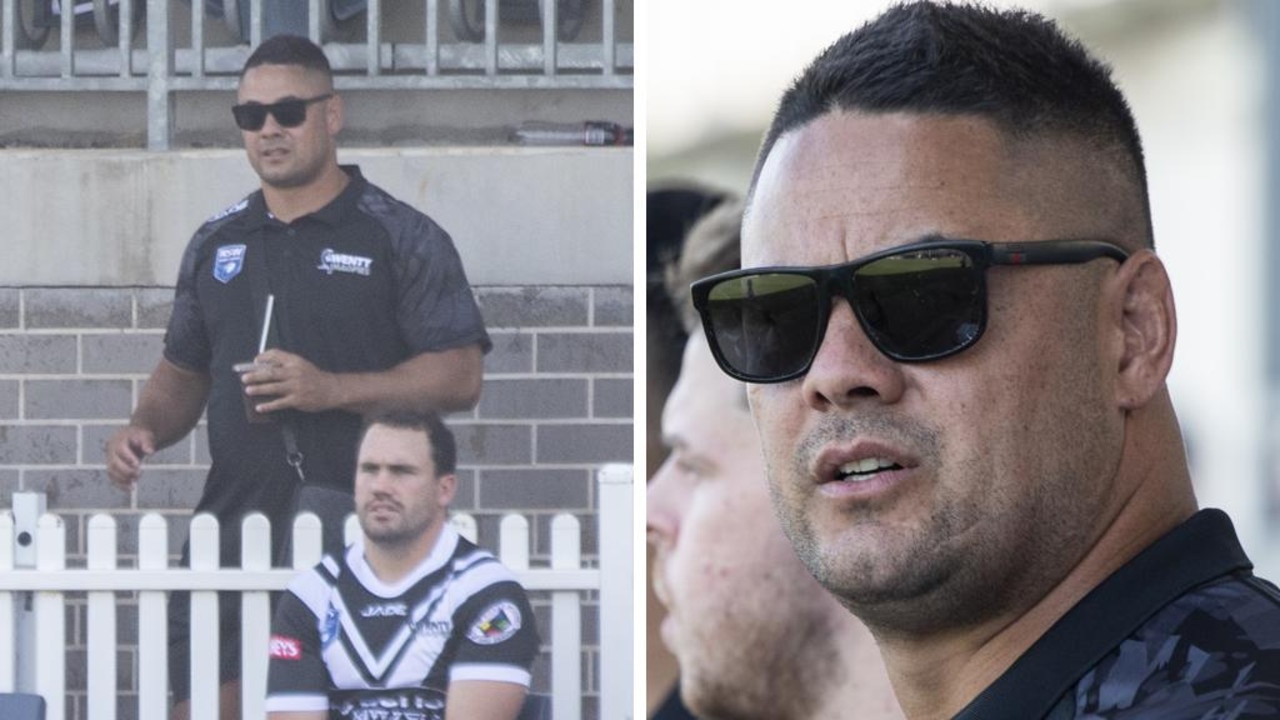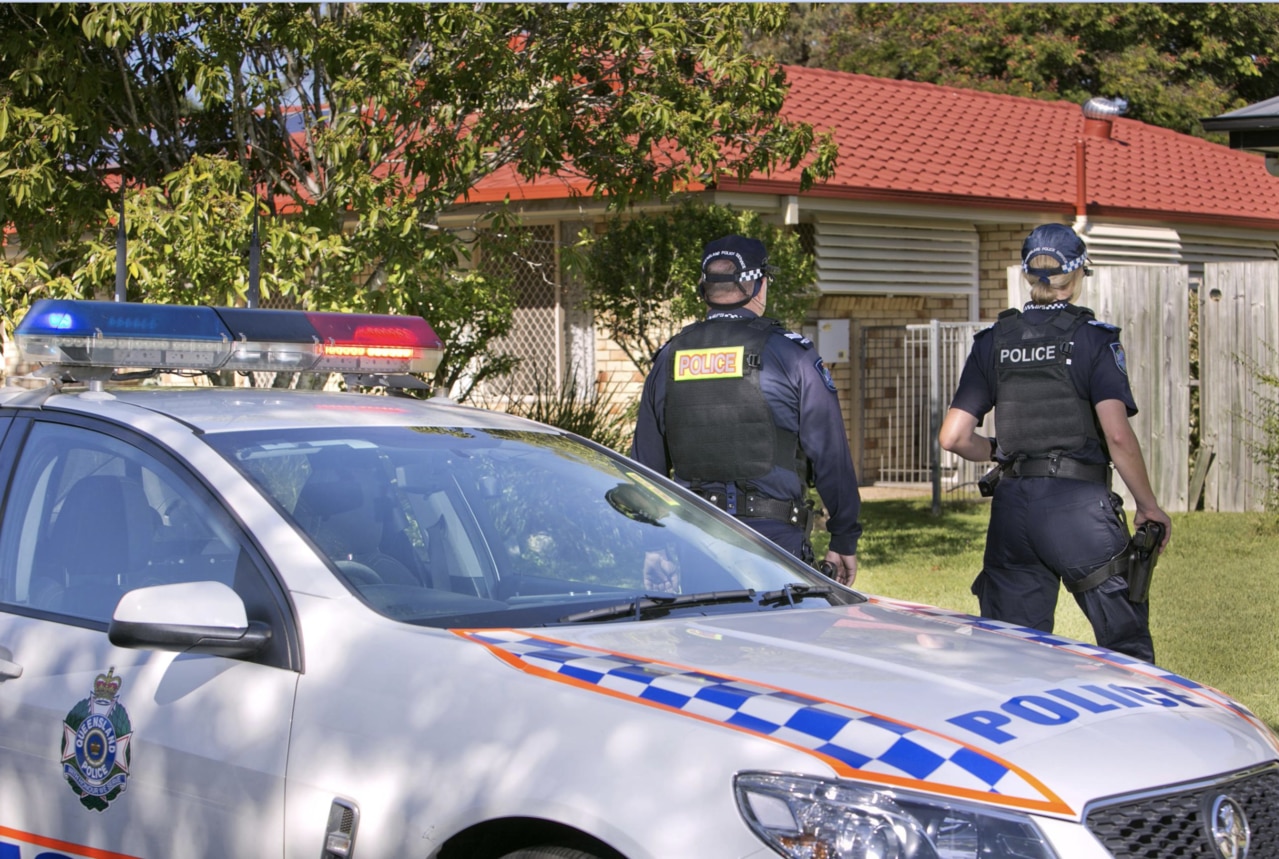Epidemiologist Professor Mary-Louise McLaws dies at age 70
Professor Mary-Louise McLaws, the epidemiologist who advised Australians during the pandemic, has died. Here’s how she guided the nation.
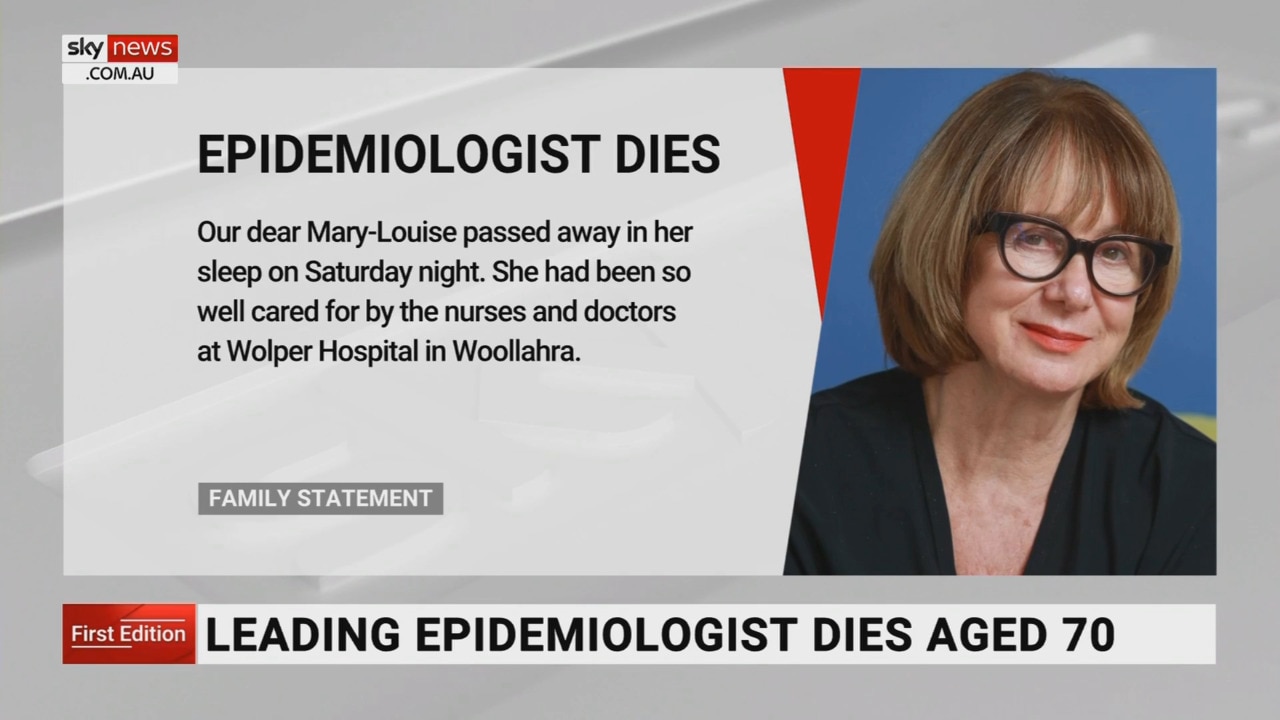
National
Don't miss out on the headlines from National. Followed categories will be added to My News.
Professor Mary-Louise McLaws, the respected epidemiologist who became a familiar face as she guided Australians through the Covid-19 pandemic, has died at the age of 70.
The University of New South Wales health expert, who was diagnosed with a brain tumour last year, was a knowledgeable and reassuring presence as she provided reliable advice to Australians during the biggest global health crisis in generations.
We look back on Professor McLaws’ remarkable achievements and the critical lessons she taught us about Covid-19.
WHO WAS PROFESSOR MARY-LOUISE MCLAWS?
Professor McLaws provided commentary on the pandemic in the media and also worked on the Covid-19 frontline as a scientist.
With her calming voice of reason and her distinctive sleek bobbed haircut, Professor McLaws became a familiar figure on TV screens.
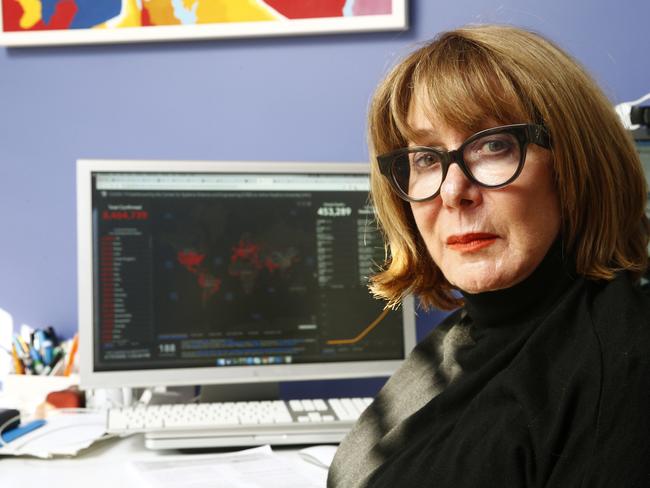
Seated in front of her colourful bookcases in her Sydney home, she became a trusted source of knowledge for Australians during the darkest days of the pandemic.
Prior to the outbreak of the coronavirus in March 2020, she was already a leading international figure in the world of disease control and infection prevention.
Among her many achievements, she was a member of an advisory panel on infection prevention and response to Covid-19 for the World Health Organisation.
Professor McLaws trained dozens of public health students and supervised countless PhD candidates.
She was also a member of the NSW Clinical Excellence Commission Covid Infection Prevention and Control task force.
WHAT DID SHE TEACH US ABOUT THE DELTA VARIANT?
When the Delta variant hit Australia in June 2021, Professor McLaws warned that the lessons learned in battling Covid during the previous 18 months “no longer apply”.
She also called on authorities to vaccinate Sydney’s 20 to 39-year-olds as a matter of urgency, saying that the previous belief that young people were less at risk was no longer the case.
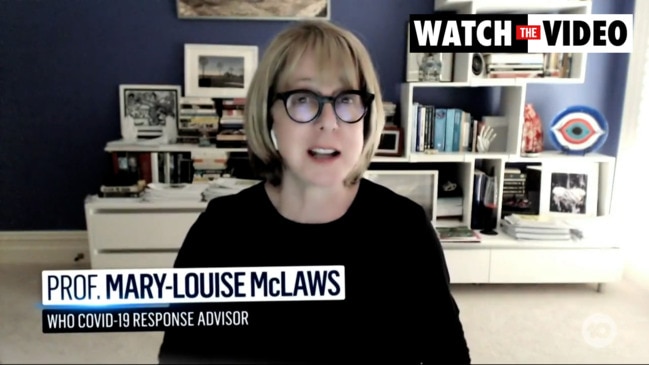
“Across the world, particularly from the UK and US, we are learning that the lessons we learned previously about the different strains no longer apply,” she told The Sunday Project in July 2021.
“Certainly, what we’ve heard from the UK is that Delta means people are twice as likely to be hospitalised, and that you don’t need 15 minutes of exposure within 1.5m (to contract the virus). All of that is thrown out.
“The other thing we thought worked was that young people are not at risk – all of that seems to be wrong. This particular virus develops about 1000 times more virus load in patients, so they are highly infectious. We’ve also learned the incubation period is two days shorter than we ever thought.”

WHAT ABOUT OMICRON?
When the first wave of the Omicron variant reached Australia in late 2021, Professor McLaws said she was “disappointed” that an outbreak plan was not implemented before the summer holidays.
“Our summer, our Christmas is potentially a super-spreading event,” she told the Today show.
“I’m a bit disappointed in outbreak management, particular large ones, behaviour and super spreading event that’s coming in the future need to have a plan.”
Professor McLaws claimed too much focus was placed on vaccine rates and not social distancing measures.
“Just relying on vaccination rates wasn’t enough,” she said.
“The vaccine is really terrific to prevent you from dying and hospitalisation, but you can still get infected and you still have a small risk of passing it on.
“But you still need to plan for Australia’s most favourite time, which is very similar to the northern hemisphere’s problem of winter.”
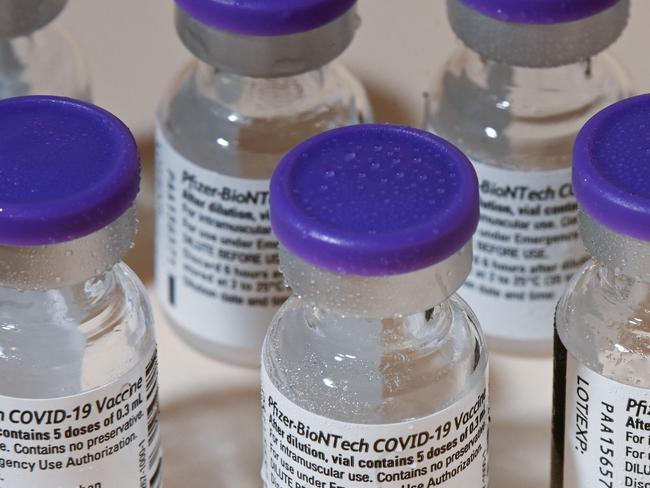
WHAT WAS HER STANCE ON COVID-19 RESTRICTIONS?
As a leading epidemiologist, Professor McLaws emphasised the need for tough restrictions, particularly when it came to superspreader events.
One of her main criticisms was that the NSW government had not acted quickly enough to control the infectious spread.
Professor McLaws believed that the use of hotels for returning travellers was not the right approach and that they should be sent to newly built quarantine stations.
“Returned travellers need to go to a purpose-built facility with highly-trained staff that are not only ensuring the returned travellers remain under mandatory quarantine but are kept safe from each other,” she told The Mosman Daily in July 2020.
“We need to develop a facility for the long-term given that this will not be the last pandemic in our lifetime.”
WHAT WAS HER VIEW ON MASKS?
They have become the norm now but prior to the pandemic, Australians were not accustomed to wearing masks.
A long-time proponent of mask use, Professor McLaws helped break down for the public their benefits during a pandemic.
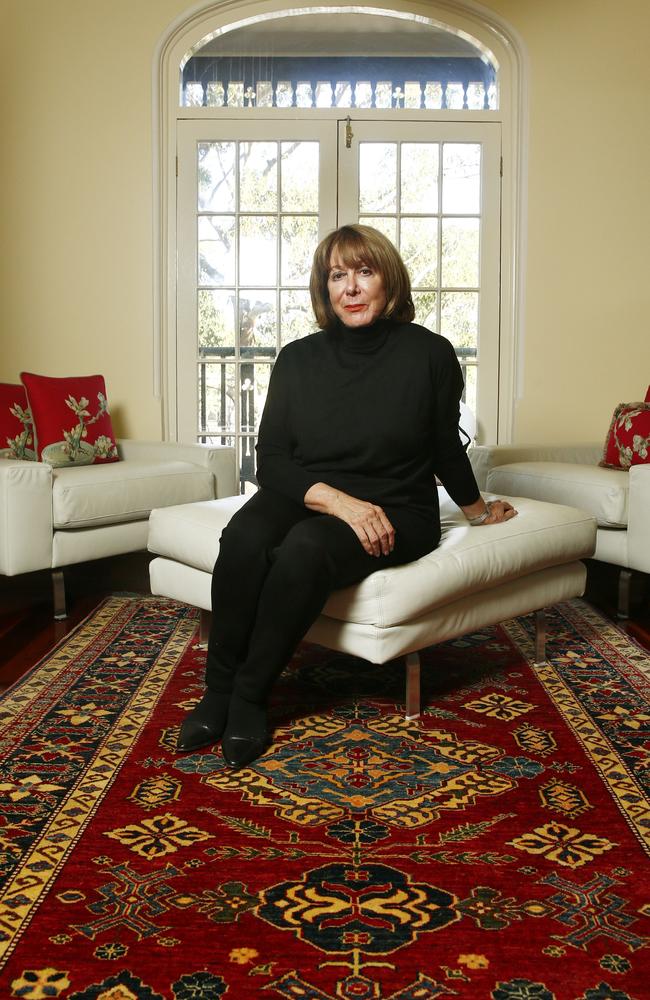
Professor McLaws strongly advocated the use of masks outdoors.
“When there’s circulating virus, we absolutely need to wear a mask outside. I still see people going for a walk without a mask, and then coming into shopping areas without a mask,” she told The Project in July 2021.
“Please, you’re placing yourself at risk of breathing in somebody else’s exhaled particles. Please wear your mask.”
Professor McLaws also emphasised the need for masks to be worn correctly.
“(Masks are) absolutely necessary, because you could be breathing it out, particularly indoors. But you need to wear that mask over your nose,” she told the Today show in December 2021 at the height of the Omicron variant outbreak.
“Putting it under your nose is not preventing people from catching Omicron or Delta from you if you are breathing it out, and you are certainly not filtering any virus through the mask if you are putting it under your nose.”
WHAT WILL PROFESSOR MCLAWS’ LEGACY BE?
Professor McLaws was made an Officer of the Order of Australia (AO) in 2022 and repeated her calls for Australians to get a booster shot.
For most of us, her legacy will be her wise and kind presence in a time of unprecedented crisis.
Professor McLaws is survived by her husband, Richard, and her children Zia and Zachary.
More Coverage
Originally published as Epidemiologist Professor Mary-Louise McLaws dies at age 70




